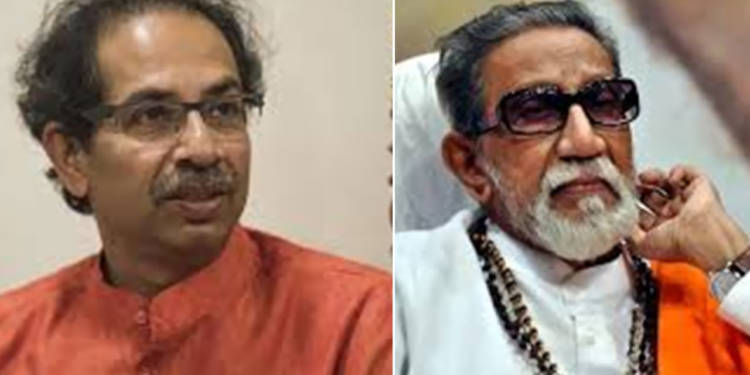Uddhav Thackeray, the newly appointed Chief Minister of Maharashtra, has asked to stop the payments of ongoing infrastructure projects, including that of Bullet train. The newly formed Maharashtra government has taken a vindictive anti-development stance by stalling important infrastructure projects in Mumbai. The government is resorting to ‘povertarian’ left-wing economic ideas, and taking anti-development decisions to appease the ‘environmental activists’.
A few days ago, the party mouthpiece- Saamana, showered praise for Nobel Prize winner leftist economist- Abhijit Banerjee.
In an editorial in support of the JNU students protest, Saamana stated, “This University has given many gems like Abhijit Banerjee who are making India proud. This institution has given many great leaders but none of them were of the right-wing view.”
Let me take you back to five decades ago, in the mid-1960s, when the labour unions were a rising force across the cities, including in Mumbai.
A Communist government was elected in Kerala in the late 50s, and labour unions were taking over the major cities like- Mumbai, Kolkata, and Chennai.
The Congress government saw Communists as a threat to their political dominance. Therefore, the Congress government supported the rise of Balasaheb Thackeray led Shiv Sena, who countered the Communist with Marathi Manus (son of the soil) plank.
This way, Congress could get rid of the dominant Gujarati businessman, who controlled politics and economics of Mumbai before and after the independence.
As the state was formed with a bloody ethnic conflict between common Marathi people and Gujarati dominated administration, the Congress politicians who came to power wanted a Marathi Manus (son of the soil) in Maharashtra politics and a person like Balasaheb Thackeray was best suited to promote this kind of politics.
Slowly Shiv Sena took over all the labour and trade unions (which it still controls) with Communists. Many prominent Communist leaders were killed, and others left the leadership in fear. The Congress government in the state was very tolerant to the Shiv Sainiks who carried out attacks on trade union leaders. Communism and trade unionism was wiped out of Mumbai by Balasaheb Thackeray, with passive support from Congress.
This was an unsaid truth of Maharashtra politics until a few days ago, when senior Congress leader, Jairam Ramesh recently said, “We were ideological opponents of Shiv Sena but let’s not forget in 1967 it was SK Patil and VP Naik who were responsible in many ways for the creation of Shiv Sena to break the monopoly of the AITUC and the CITU then trade unions of Bombay [Mumbai].”
Had it not been Balasaheb Thackeray, Mumbai would have gone in hands of Communist by 70s, as witnessed in Kolkata. The city of Kolkata and the state of West Bengal slipped in the hands of Communists by 1970s, and what happened to the city and the state in the last five decades is well known. Therefore, Balasaheb Thackeray saved Mumbai from disastrous Communist regime.
But, the newly appointed Chief Minister plans to take Mumbai to back to the days of the leftist economics and politics, the very same political and economic ideology his father fought.
The way Shiv Sena mouthpiece Saamana has eulogised Banerjee, it won’t really come as a surprise if the Uddhav Thackeray government actually pulls back Maharashtra to the days of left-dominated Union politics of the 60s and 70s in Maharashtra.
There have already been ominous signs of the state faltering to the Nehruvian era socialism, and the growth agenda getting derailed. The manner in which the Aarey metro rail car shed project has been suspended by the newly elected Thackeray government already shows that the coalition government is susceptible to populist ideas, and its policies might turn to dust all the good work done by the Fadnavis government. This shows that the newly created government is not going to focus on development; rather it will base its policies on populist measures.
























